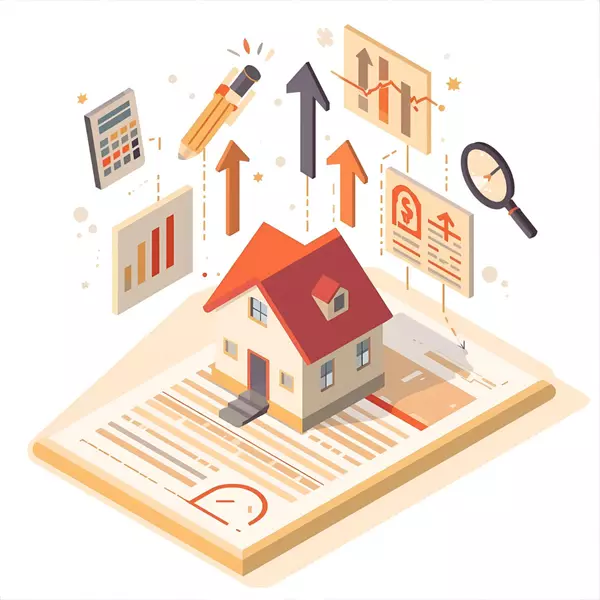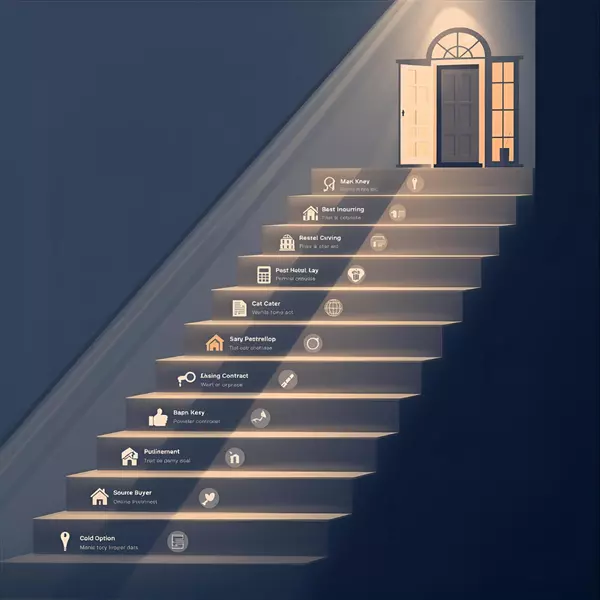How to Avoid Emotional Decisions When Buying a Home
How to Avoid Emotional Decisions When Buying a Home
Introduction: The Dangers of Emotional Decisions
Buying a home is an emotional journey. It’s exciting to envision your future in a space, but letting emotions drive your decision can lead to costly mistakes and buyer’s remorse. In fact, studies show that a significant percentage of buyers regret their purchase because they made decisions based on feelings rather than facts. The good news? You can avoid these pitfalls by staying focused, logical, and prepared. In this blog, I’ll share actionable tips and strategies to help you make confident, well-informed decisions when buying your next home.
Why Emotional Decisions Can Be Costly
🚨 First Impressions Are Powerful—and Misleading
- The Staging Effect: Beautiful staging can make a home look perfect but might hide underlying flaws. For example, a home with stunning furniture might distract you from noticing a leaky roof or outdated plumbing.
- Emotional Attachments: Falling in love with a specific feature, like a fireplace or backyard, can cloud your judgment about other important aspects.
🔍 Short-Term Thinking, Long-Term Consequences
- Decisions driven by emotions often focus on immediate gratification rather than long-term suitability.
- Example: A buyer loves the look of a modern kitchen but overlooks the fact that the home is in a high-traffic area, leading to noise and inconvenience.
Quote: “When emotions run high, reason often runs low.” – Daniel Kahneman, Behavioral Economist
How Emotions Affect Decision-Making
🎯 Common Emotional Triggers
- Aesthetic Appeal: Trendy finishes or staged homes can create a false sense of perfection.
- Fear of Missing Out (FOMO): In competitive markets, buyers may feel pressured to act quickly, leading to rushed decisions.
- Family and Peer Influence: Advice from well-meaning friends or family can add emotional weight to your choices.
⚠️ The Risks of Emotional Decisions
- Overpaying for a Home: Emotional bidding wars can push buyers beyond their budget.
- Overlooking Flaws: Key issues like structural damage or maintenance needs may be ignored in favor of an emotional connection.
- Buyer’s Remorse: Regret often sets in when a home doesn’t live up to expectations.
🛠️ Strategies to Avoid Emotional Decisions
1. Define Your Priorities
- Create a Checklist: List your must-haves, nice-to-haves, and deal-breakers. Focus on factors like size, location, layout, and price.
- Example: If you’re looking for a home close to schools, don’t compromise on location, even if another property has a beautiful kitchen.
- Stick to Your Budget: Set a maximum price and don’t let emotions push you beyond it.
2. Pause and Reflect
- Take Your Time: Avoid making offers immediately after a showing. Sleep on it and revisit your checklist.
- Ask Yourself Tough Questions: Would you still love this home if it didn’t have [feature]?
3. Focus on the Big Picture
- Think Long-Term: Will this home meet your needs 5-10 years from now? Consider factors like potential family growth or resale value.
- Separate Wants from Needs: Focus on functional aspects, like layout and neighborhood, rather than trendy finishes.
4. Rely on Data and Experts
- Compare Objectively: Use your checklist to rank homes based on your criteria rather than emotional reactions.
- Analyze Market Trends: Ensure the home’s price aligns with comparable properties in the area.
- Consult with Your Realtor: A good agent provides unbiased advice and helps you focus on what matters.
5. Bring a Trusted Advisor
- Have a Second Opinion: Bring a family member, friend, or advisor who can offer an objective perspective.
- Pro Tip: Choose someone who’s not emotionally invested in the decision.
🚩Red Flags to Watch For
- Overwhelming Scents or Staging: Heavy fragrances or excessive décor might be masking flaws.
- High-Pressure Tactics: If an agent or seller pushes you to make a quick decision, proceed with caution.
- Ignoring Inspections: Skipping a home inspection because you “love the house” can lead to major regrets.
- Unrealistic Comparisons: Falling for a home just because it’s “better than the last one” without considering overall fit.
📝 Tips for a Smart, Confident Decision
- Do Your Homework: Research the neighborhood, schools, and local amenities before visiting a home.
- Stay Organized: Take photos, notes, and keep track of pros and cons for each property.
- Plan Ahead: Avoid impulsive decisions by setting clear timelines for your home-buying process.
- Embrace Patience: Remember, the perfect home is one that meets your needs, not just your emotions.
Conclusion: Keep Emotions in Check
Buying a home is one of the most significant decisions you’ll ever make. While it’s natural to feel excited, staying logical and focused will help you avoid costly mistakes and find a home that truly fits your lifestyle and goals. By defining your priorities, relying on data, and seeking expert advice, you’ll make a decision you can feel confident about.
As a Saskatoon-based realtor with the Bouvier Real Estate Group at eXp Realty, I’ve helped countless buyers navigate this process successfully. If you’re ready to start your home-buying journey or need guidance along the way, call me at (306) 370-6179, or connect with me on Instagram, Facebook, or LinkedIn. Let’s find a home you’ll love for all the right reasons.
Categories
Recent Posts










GET MORE INFORMATION


